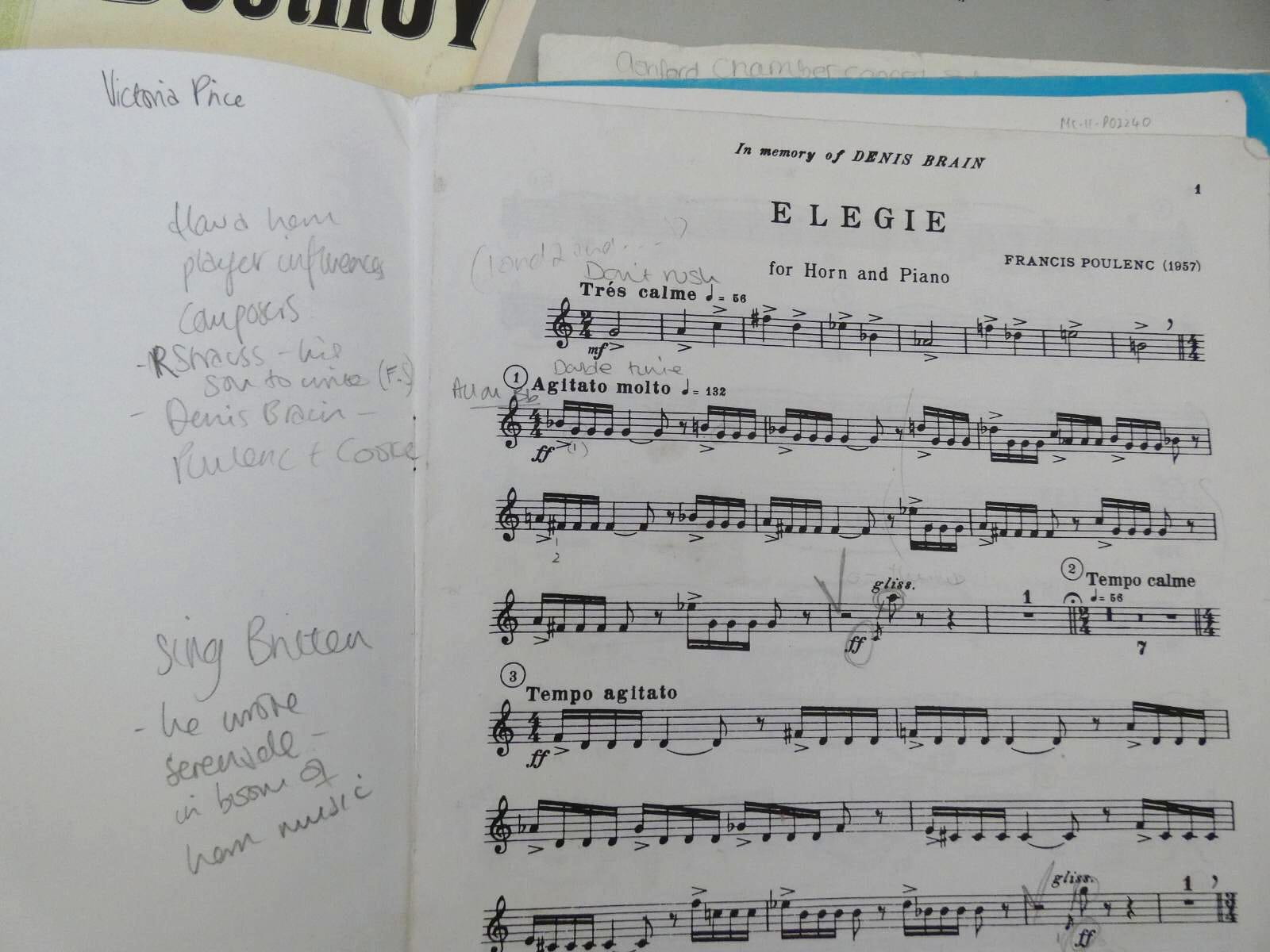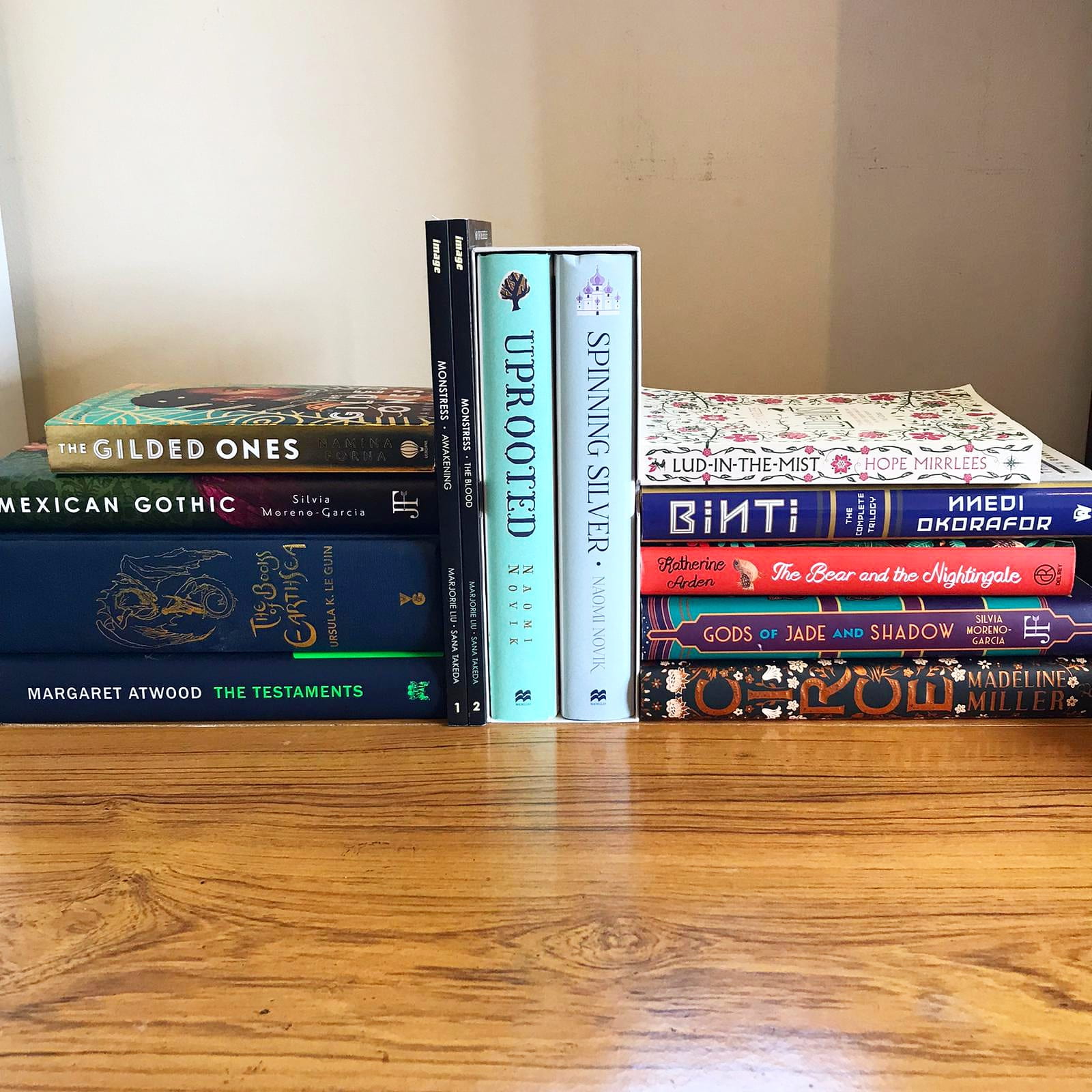Anthony Davis Book Collecting Prize: Collecting with Intention
By Sarah Pipkin, on 12 April 2021
The Anthony Davis Book Collecting Prize is an opportunity to celebrate student collectors and the diverse collections they build and nurture. Last year we wrote about how you can be a student book collector without even realising it. But what is the difference between a book collector and someone who just owns a lot of books? For us, and the judges on the Book Collecting Prize panel, the difference is collecting with intention.
What is Collecting with Intention?
Collecting anything is about building a collection of material around a common theme for a specific purpose. You could be collecting because you really love the subject, author or artist. Or it might be about raising awareness or preserving a history you believe is important. But it becomes a ‘collection’ when it forms a cohesive whole. Think of books or items that if you would give away as a unit rather than one item at a time.
The intention behind your collection can be academic or it can just be something that you are passionate about. Some of last year’s finalists collected in areas that overlapped with their studies, while the 2020 winner submitted a collection of books she had since her childhood. You can also submit material such as letters, postcards, and comic books.
It’s all well and good talking about this in the abstract, but what exactly does an intentional collection look like? Let’s look at some examples:
Vicky’s Collection of Music for the French Horn
Potential Collection Title: Milestones for a Music Student
Vicky, our Head of Outreach, has a collection of sheet music for the French horn. Her sheet music cover different milestones of a student’s journey to learning how to play the instrument. The music was primarily bought when she was learning the instrument herself as a child. None of the music in the collection are particularly rare, but some of them are now out of print.
When Vicky started the collection, it was music that she needed to proceed to the next milestone of learning music. It wasn’t really a collection at the time – it was just the assigned sheet music for learning the French horn. However, over time she filled her books with annotations that documents her journey as a musician. This includes names of music teachers, recitals and more. They now serve as a history of her progress as a music student. Once she finished her studies, she kept the collection as a single unit. They have a certain amount of sentimental value – they represent the journey she took when learning the French Horn and remind her of the teachers and concerts that helped her along that journey. But it also represents what the musical journey of most French horn players – the music pieces that she has are very popular amongst people learning the French Horn and become more technically difficult over time. If she was to give the collection away, she’d give it to a music student at the beginning of their learning journey as, in theory, they then wouldn’t need to buy another piece of music until they finish their studies. But it’s also a collection that’s still in use. Vicky returns to old music to practice her skills and finds that the music she learned years ago is still challenging for different reasons. Why she isn’t actively adding to the collection, it serves as a physical representation of a learning journey.
What does this mean for you, a potential applicant to the Anthony Davis Book Prize? Books that you may have purchased over the course of learning something new, but then changed in significance to you overtime, may be a great thing to submit to the Book Prize. When looking at your collection, try asking yourself the following questions:
- What does this collection represent to you?
- What about it tells a story that I think is important?
- What about my relationship to these items has changed that makes me think of them as a cohesive whole?
Sarah’s collection of modern science fiction and fantasy written by women
Potential Collection Title: Imagined Feminist Futures
I collect science fiction and fantasy novels written by women. These are primarily books published in the past five years, but I am also actively seeking earlier works. A few years ago I realised that despite the fact that I love the science fiction and fantasy genre, almost all of the authors I’ve read were men and the authors I had on my shelves were entirely men. So, I decided to change that by intentionally reading and buying science fiction and fantasy books authored by women. It started out as just a reading project – I read primarily library books or ebooks. But as I realised how many authors I had been ignoring, my purchasing patterns started changing as well. The moment I started seeing it as an intentional collection was when I bought a special edition of the collected Binti novellas – a series of novellas that had initially been published online but were re-issued in a physical format.
As my collection has grown, it has become a reference library for myself and other people in my social circle. I also am more likely to buy a book by an author that I haven’t read if I believe it will fill a gap in my collection. While my collection is also dependant on the books I enjoy – part of it has been regifted to friends when I didn’t enjoy the story – there is a core set of books that I would be very reluctant to part with and serve as a representation of women’s contributions to the genre.

Binti: The Complete Trilogy. While tracking down this edition, I started to see my books as a collection.
If you, like me, started a collection to fill a knowledge gap or encourage better buying habits, these questions might help you think a bit more deeply about your own collection:
- Why do you buy the books you buy (beyond them being required reading)?
- Why do you buy particular editions?
- What have you learned from building your collection?
Final Thoughts
Even though Vicky and I both collect printed material, your collection doesn’t have to be limited to printed books or sheet music. Instead, it can be a collection of letters or diaries, postcards or greeting cards. The items you collect do not have to be old or historically valuable – modern material is welcome. What we want to see in applications to the Anthony Davis Book Prize is intention and purpose. If you can tell us why these items serve as a cohesive whole and the story they tell, then you’ll be the ideal applicant to the Book Prize.
We are now accepting applications for the 2025 Anthony Davis Book Prize! The prize is open to all students at a London based university and applications close on Friday 25 April 2025. For more information, visit our main page for the Anthony Davis Book Prize.
 Close
Close





 UCL Special Collections R 221 DICTIONARIES WEBSTER 1869 – Webster, The people’s dictionary of the English language (London, [1869?])
UCL Special Collections R 221 DICTIONARIES WEBSTER 1869 – Webster, The people’s dictionary of the English language (London, [1869?])

 UCL Special Collections R 221 DICTIONARIES PERRY 1778 – Perry, The ro[yal] standard English dictionary (Edinburgh, [1778])
UCL Special Collections R 221 DICTIONARIES PERRY 1778 – Perry, The ro[yal] standard English dictionary (Edinburgh, [1778])
